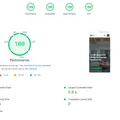Why Custom-Coded Websites Are Best for Small Businesses
When choosing a website for your small business, you're faced with a range of options. Many businesses turn to website builders like WordPress, Wix, Squarespace, GoDaddy, Webflow and Ionos, because they seem like an affordable and easy way to get online.
While these platforms might be commonly used, they come with serious limitations. A custom-coded website gives you full control over design, performance, security, and scalability without being restricted by the limitations of a pre-built system.
Let's break down why custom websites are the best choice and explore the issues with the most popular website builders.
The Limitations of Website Platforms
WordPress: Flexible but Bloated
WordPress is one of the most popular website platforms and powers half of the internet. While it is popular and can work well for large businesses with large budgets, small businesses will often be presented with a templated WordPress site that leads to more problems than solutions.
- Over-reliance on plugins - Most WordPress sites need multiple plugins to function on a budget, which slows down load times and creates security risks if they aren't updated or vetted properly.
- Ongoing maintenance - Core updates, plugin updates, and theme updates need constant attention. If something breaks, fixing it can be time consuming and expensive.
- Security vulnerabilities - WordPress is a common target for hackers because of outdated plugins and themes. You can easily download databases of website URLs that use WordPress, which hackers will use to find vulnerabilities.
- Slow load times - Small businesses often have to rely on bloated page builders like Elementor or Divi to fit a tight budget. These page builders include unnecessary code to accommodate multiple use cases, meaning websites take longer to load, even if they don’t use those features. If your website takes too long, most people will leave, which can directly affect your SEO.
For businesses that want a secure, high-performance website without the need for constant maintenance, WordPress isn’t the best choice if you're on a budget.
Wix: Easy to Use, but Limited
Wix is known for its simplicity, but that ease of use comes at the cost of flexibility.
- Limited customisation - Wix doesn’t allow full access to code, which means businesses are stuck with the features and templates it provides, leading to websites that look identical to many others in the same industry.
- SEO limitations - While Wix has improved its SEO tools, businesses don’t get full control over technical SEO elements such as structured data and schema markup, both of which help websites rank on Google.
- Performance issues - Wix websites tend to load slower because of how their system handles JavaScript and page rendering. Websites should load in under two seconds, otherwise, half of the audience will leave. Wix can take upwards of six or seven seconds.
- Scaling issues - Wix is known for mobile device issues and should only be used as a temporary starting point for businesses. If a company grows and needs advanced features or integrations, Wix quickly becomes restrictive.
For businesses that want long-term growth, Wix often creates roadblocks rather than opportunities.
Squarespace: Stylish but Restrictive
Squarespace is popular for its modern templates, but it lacks flexibility and comes with performance concerns.
- Rigid template system - Squarespace sites are built around a templated structure, limiting how much businesses can customise their websites.
- Limited backend control - Unlike a custom website, businesses can't modify the site beyond what Squarespace allows.
- Lack of integrations - If a business needs a custom booking system, API integration, or specific third-party tools, Squarespace may not support them, leaving businesses stuck with only the integrations the platform allows.
- SEO challenges - While Squarespace has basic SEO features, it doesn’t offer full control over page structure, metadata, or technical SEO elements that a custom-coded website provides.
Businesses looking for a website that stands out and offers full functionality may quickly find Squarespace too restrictive.
GoDaddy Website Builder: Basic and Ineffective
GoDaddy offers an easy-to-use website builder, but it’s one of the least effective platforms for businesses.
- Severely limited features - GoDaddy’s website builder is even more basic than Wix and Squarespace, offering very little flexibility.
- Poor SEO and performance - Slow page speeds and weak URL structures make it hard for GoDaddy sites to rank on Google.
- Clunky templates - The design options are outdated and generic, meaning websites can look amateurish and fail to make a lasting impression.
For businesses serious about their online presence, GoDaddy's builder is rarely the right choice.
Webflow: Better, But Still Has Limits
Webflow offers more design freedom than Wix or Squarespace, but it still falls vastly short of a fully custom website.
- Steep learning curve - Webflow requires technical knowledge to use effectively, which can be a challenge for business owners that want something easy to manage themselves.
- Performance issues - Webflow sites rely on a JavaScript-heavy framework, which can slow down load times, increasing the number of users who leave the site before it loads.
- Limited backend capabilities - Unlike a custom website, Webflow doesn’t allow businesses to build their own backend functionality or complex integrations.
While Webflow is a step up from other builders, it still lacks the full control of a custom-coded website.
Ionos: Cheap and Low-Quality
Ionos is often chosen because it offers cheap pricing and basic website hosting. However, its website builder has several flaws.
- Poor design flexibility - The website templates are extremely limited, making it difficult to create a unique site.
- Slow speeds - Websites built on Ionos tend to perform poorly in Google PageSpeed tests, which hurts user experience and search rankings.
- Limited SEO tools - Businesses have little control over technical SEO settings, making it difficult to optimise sites for Google search.
- Difficult to scale - Ionos sites lack the flexibility to grow with a business, forcing companies to migrate when they outgrow the platform.
For businesses looking for a professional, high-performing website, Ionos isn’t a good long-term solution.
Why Custom-Coded Websites Are the Best Choice
Website builders promise convenience, but they all come with trade-offs in performance, flexibility, security, and long-term scalability. A custom-coded website removes these barriers.
Key Benefits of a Custom Website
- Faster load times - Built from the ground up for speed, without unnecessary scripts or bloated page builders. Just compare our Google Pagespeed report to your own...
- Full design and functionality control - No templates, no restrictions, just a website that fits your business perfectly.
- Stronger SEO performance - Clean, lightweight code makes it easier for search engines to crawl and index pages, so they rank more effectively.
- Better security – No reliance on third-party plugins with a website that has no backend, eradicating vulnerability to cyberattacks.
- Scalability – Your site can grow and evolve with your business, without limitations. It's all about what you want on the site, rather than what you are limited to having.
At Test Valley Digital, we specialise in custom-coded websites that gives businesses complete control without the downsides of pre-built platforms.
Unlike Wix, WordPress, or Squarespace, our websites are:
- Fast – 90+ Google PageSpeed scores.
- Secure – No plugins, no security risks.
- Fully managed – Hosting, maintenance, and unlimited edits included, so you can leave your website with the experts.
- Cost-effective – A single monthly fee with no upfront cost.
It's a no brainer, right?







